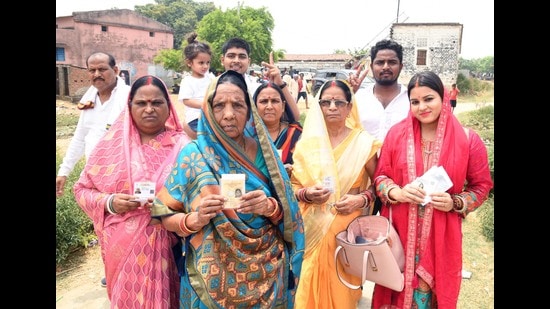Jul 06, 2024 09:31 PM IST
A lot has been done, to the credit of all parties, but a lot more needs to be done and women cannot be relegated to being just valuable voters at election time.
The last few elections established that women’s vote matters. This explains the promises on women’s empowerment in almost all parties’ manifestos. As the new government assumes office, the promises must be brought to centre-stage. All the parties had spoken of women’s health, safety and employment among other issues. The Bharatiya Janata Party (BJP)’s manifesto promised the creation of a Viksit Bharat where Nari Shakti would be a pivot for society’s progress. “Through a series of legal and policy frameworks, we will ensure the dignity of women and provide them with equal growth opportunities… we will empower women Self-Help Groups (SHGs) with the skills and tools in key service sectors… with an aim to increase their income,” it promised.

But, Renana Jhabvala of SEWA says, “Women want ‘earning work’. Around 50% of women are self-employed, and need finance ranging from ₹2 lakh to ₹10 lakh to grow their tiny, informal enterprises. At present, through Mudra, only small loans are available … the formal sector needs to train and hire a much larger number of women. (We need) child care, especially government-run creches on a large scale so that women can work.”
The Congress manifesto was not far behind. It promised ₹1 lakh per year to every poor Indian family, to be transferred directly to the bank account of the oldest woman of the household. Maja Daruwala, chief editor, India Justice Report, says, “Every party’s manifesto lays out specific promises to improve the lot of women. Now that the dust of elections has settled, it’s time to make good on them — not in some foggy future but immediately. Women’s participation in education, employment and representation in the structures of government and in judiciary show that there is an iron, not a glass ceiling, of discrimination and disadvantage in place. If we are serious about ensuring women’s participation in all spheres of national life, specific policies with measurable goals must be immediately put in place.”
One party which did its bit on fielding women candidates is the Trinamool Congress (TMC). TMC also promises the appointment of an Adhikar Maitri in every panchayat to assist women in the enforcement of their legal rights. Sagarika Ghose, TMC’s Rajya Sabha MP says, “The rising importance of the woman voter is being revealed in election after election. In 2024, more women voted than men. The TMC’s Lakhir Bhandar programme received a massive response from women and contributed to the party’s triumph in Bengal.” The CPM has championed a law for equal rights in marital and inherited property for all women, strengthening laws relating to maintenance for women and children, ensuring protection, maintenance and rehabilitation for all deserted women.
“Women are now the change-makers whether in entrepreneurship, politics, forces, sports or any leadership roles. It is crucial for the new government to support this momentum,” says Rekha Sharma, chairperson, National Commission for Women.
The number of women in Parliament now is a dismal 74 but this does not mean that women’s issues can be deprioritised once elections are done and dusted. As the last election showed, the vote of any group, leave alone one as disparate as women, cannot be taken for granted. Parties must redeem their manifesto promises without delay. Can they take their own time to fulfill pledges even as women increasingly use the electoral process to voice expectations? The writing on the wall is clear. Today, the winnability of even the most popular candidates rides on their approval rating among women. A lot has been done, to the credit of all parties, but a lot more needs to be done and women cannot be relegated to being just valuable voters at election time.
The views expressed are personal
Story Saved


